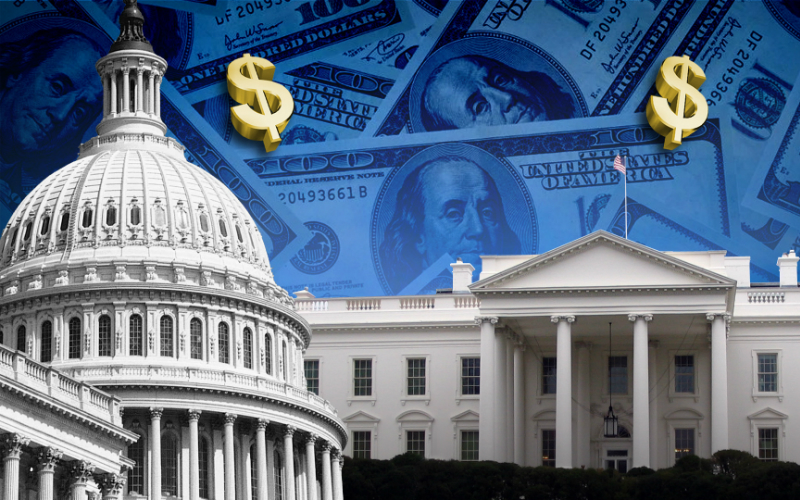The Associated Press reported Friday that Rep. Jim Jordan (R-Ohio) was "dropped" from the House Speaker's race after a third failed attempt to reach the 217-vote threshold for victory. Jordan's vote tally actually decreased each time. The Judiciary Committee chairman, Jordan carried an endorsement from former President Donald Trump, but that didn't sway centrist Republicans who considered the Ohio congressman too extreme.
A Speaker search that began with Steve Scalise, Jim Jordan, and few others now appears wide open as Republicans endure the taunts and Democrats and start over.
President Joe Biden was attending a campaign fundraiser Friday when he was asked about Jordan's speaker efforts. "He just got his rear end kicked," Biden responded, according to The Associated Press.
Now it appears at least nine different Republicans will enter the race. They'll try to whittle that number down to one "speaker designate" after a series of ballots on Monday and have a floor vote on that designate on Tuesday, Washington Stand congressional reporter Kerry Picket said on Washington Watch Friday.

"This is subject to change like anything else. Everything is extraordinarily fluid right now," Picket told show host Jody Hice.
In a sharply divided Republican caucus, both sides have lost something – and Picket implied that could be a good thing. "This is probably the best time for the GOP to be unified," Picket said.
Tom Emmer, 62, of Minnesota, may be the most well-known on the list of known candidates. Emmer is a previous two-term head of the National Republican Congressional Committee, a fundraising group whose aim is to elect Republicans to the U.S. House.
Other candidates include Austin Scott of Georgia, Byron Donalds of Florida, Kevin Hern of Oklahoma, Gary Palmer of Alabama, Jack Bergman of Michigan, Mike Johnson of Louisiana, Pete Sessions of Texas and Dan Meuser of Pennsylvania.
The Speaker vacancy occurred when Californian Kevin McCarthy was ousted after a call to vacate the chair by Matt Gaetz of Florida on Oct. 3. McCarthy has thrown his support behind Emmer, the No. 3 Republican in the House, the whip, whose job is largely to assist party leadership by counting votes to pass the Speaker's agenda.
"Will [McCarthy's support] help Mr. Emmer? Maybe. It could also hurt Mr. Emmer. There are a number of people who didn't like Mr. McCarthy," Picket noted.
Could Donalds gain traction in the race?
Byron Donalds (pictured below), a relative newcomer to Capitol Hill, is an interesting name in the race. The native New Yorker received 20 votes for Speaker in January during a process that required 15 rounds of voting to elect McCarthy.
However, Donalds' lack of years in Congress – he's in only his second term – could be an issue for some of his fellow Republicans.
 "He's very popular among a lot of his colleagues, but then of course you have the kind of stodginess of a lot of lawmakers who have a kind of, 'It's not your turn yet, you're kind of jumping ahead [mentally],' but he's very popular," Picket said.
"He's very popular among a lot of his colleagues, but then of course you have the kind of stodginess of a lot of lawmakers who have a kind of, 'It's not your turn yet, you're kind of jumping ahead [mentally],' but he's very popular," Picket said.
Occasionally time in office can have a negative impact. Emmer has been around long enough to make friends and enemies alike. Some hardliners believe the Minnesota Republican was not sufficiently supportive of Trump after the 2020 election, while some moderates were privately unhappy that he did not back a move to expand the powers of acting Speaker Patrick McHenry of North Carolina, according to The New York Times.
"Being around here for too long you kind of risk getting a lot of people angry at you," Picket observed. "Then the next thing you know, you're kind of in a Jim Jordan/Steve Scalise, [Kevin] McCarthy situation where you have too many people angry at you and a lot of votes that are not coming your way. It can kind of work both ways."







